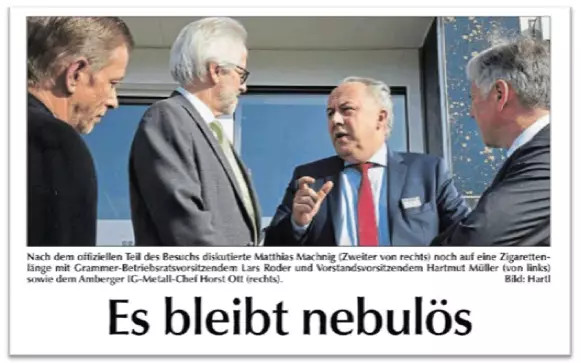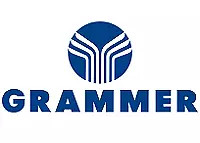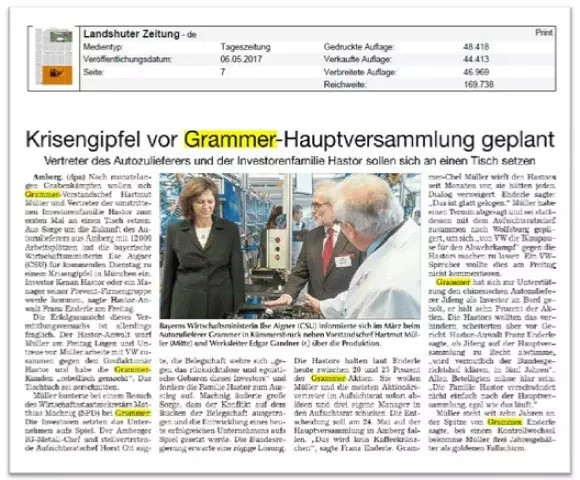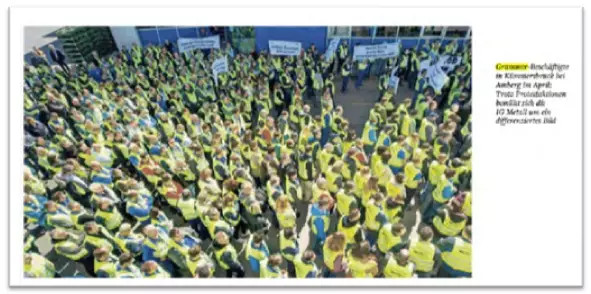NEWS
The European “Vanke Equity Dispute”:How Shentou assisted Jifeng in acting as a White Knight.
- 2017-07-05
- 13:12

Grammer Group, a German-listed company, is the world’s leading automotive parts supplier. Since February 2017, the control of Grammer’s shares has gained the whole industry’s attention. Especially during the month before Grammer’s Annual General Meeting on the 24th of May, the number of daily reports on this incident surpassed 50 articles per day. Global renowned media companies, such as Reuters, Deutsche Presse-Agentur and Automobilwoche, tracked and reported this incident with high interest.
Given the possible impact on the entire German industry, Grammer’s major clients (Volkswagen, Daimler, BMW and other famous Automotive OEMs), as well as the German State Secretary, Bavarian Minister of Economic Affairs, industry associations, unions and heads of political parties have all made explicit statements on this incident.
As Grammer’s Chinese consultant, Shentou Investment Co.Ltd. managed to lock up Jifeng Holding Co.Ltd. as the White Knight in a highly stressful moment to fend off a hostile takeover against Grammer. Shentou’s team thoroughly planned and led this project. Later, they were interviewed by several mainstream German news outlets.

As Grammer’s Chinese consultant, Shentou Investment Co.Ltd. managed to lock up Jifeng Holding Co.Ltd. as the White Knight in extreme stressful moments to fend off hostile takeover against Grammer. Shentou’s team fully planned, led this project, and was interviewed by the German mainstream media magazine – ‘M&A CHINA/GERMANY’.
【Background - the whole story】

Grammer AG specializes in the design and manufacturing of automotive interior parts like seat systems for off-road vehicles, trucks, buses and subways. The group was listed in Germany in 1996, with a revenue of 1.7 billion euros in 2016 and has a current market capitalization of approximately 650 million euros.
Due to Grammer AG’s stake diversification in 2016, the Hastor family increased their holdings from 20% to 25% via the secondary market, becoming the group’s largest shareholder. In early February 2017, the family demanded to replace the group’s existing supervisory and management boards to gain complete control of Grammer.
Because of Hastor’s particular identity and questionable motives, the seemingly plain investment behaviour evolved into a big event that aroused the concerns of the German automotive industry, politicians and unions. Grammer’s customers, such as Volkswagen, Daimler, BMW and other OEMs, the Germany Secretary of State, Bavarian Minister of Economic Affairs, industry associations, unions and heads of political parties in Germany all held unusually sceptical views against Hastor’s intentions to acquire Grammer.

Aigner, Bavarian Minister of Economic Affairs, publicly and harshly criticized Hastor’s family for what they did in the case of Grammer: “Hastor’s irresponsible game of thrones behind Grammer and its employees can jeopardize the company’s future. “
Hastor was by no means considered an ordinary investor but a gambler. In 2016, Hastor had a dispute with Volkswagen, which caused the company to stop working for a month and resulted in huge losses. Therefore, Volkswagen was very worried that had Grammer been taken over by Hastor, it would be forced to stop production once again. After all, one-third of Grammer’s orders are generated from Volkswagen. Besides Volkswagen, various Grammer’s clients have also hinted at terminating contracts with Grammer if it were acquired by Hastor. This would be considered a deadly blow to Grammer’s 15,000 employees and the entire German automotive industry. In fact, affected by this incident in the first quarter of 2017, Grammer’s orders were reduced by half compared to the same period in 2016.

To stabilize the situation, Grammer’s management board has invited Shentou Investment Co.Ltd. as its M & A consultant, with the latter managing to lock up the White Knight Jifeng Holding under extremely tight conditions. Shentou Investment assisted Grammer in issuing Mandatory Convertible Bonds to JAP GmBH, a German subsidiary of the largest shareholder of Jifeng, and led the further M&A process. The bonds were converted into 1,062,447 common shares, representing 8.43% of Grammer’s total shares after the conversion. Simultaneously, JAP GmBH purchased a certain amount of Grammer shares in the secondary market. Through the above series of operations, JAP GmBH held approximately 15.07% of Grammer’s total shares before the Annual General Meeting and seized corresponding voting rights as strong support for Grammer.
This marks the first time that Chinese investors participated as a White Knight in the M&A of German-listed companies. As a result of this incident, during the shareholders’ meeting on May 24, the majority shareholders of Grammer AG, including Jifeng, rejected the proposal to replace the management and supervisory board, thus preventing turmoil and the stoppage of Grammer AG.Financial institutions also hired during this incident, in addition to Shentou Investment Co.Ltd., included Goldman Sachs, Morgan Stanley and Ashurst law firm.
Hastor was by no means considered an ordinary investor but a gambler. In 2016, Hastor had a dispute with Volkswagen, which caused the company to stop working for a month and resulted in huge losses. Therefore, Volkswagen was very worried that had Grammer been taken over by Hastor, it would be forced to stop production once again. After all, one-third of Grammer’s orders are generated from Volkswagen. Other than Volkswagen, other Grammer’s clients have also hinted at terminating contracts with Grammer in the event that it would be acquired by Hastor, which would be considered a deadly blow to Grammer’s 15,000 employees and the entire German automotive industry. In fact, affected by this incident in the first quarter of 2017, Grammer’s orders were reduced by half compared to the same period in 2016.



